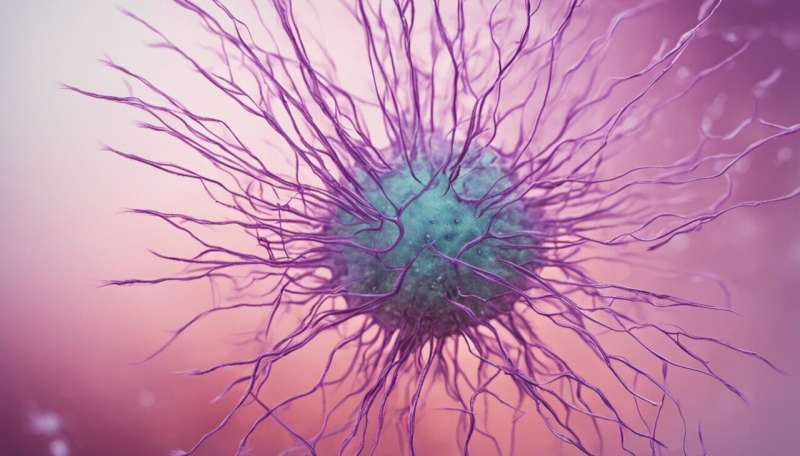Project catalyses new approach to treating Alzheimer's

An EU project has made important advances in our understanding of how catalytic molecules can treat Alzheimer's – and other – chronic diseases.
Alzheimer's disease is the most common form of dementia, with symptoms that include gradually worsening memory loss and confusion. At present there is no cure. Scientists are nonetheless confident that as we learn more about the natural processes of the body, quicker diagnoses and more effective therapies can be developed.
Indeed, the success of the EU-funded ORGANOZYMES project illustrates why medical researchers have cause for optimism. Through bringing in Spanish post-doc researcher Carlos Aydillo on a Marie Curie Intra-European Fellowship, Professor Morten Meldal, Head of the Center of Evolutionary Chemical Biology at the University of Copenhagen, has been able to make significant advances in the field of catalytic molecules.
Learning from nature
'This is a very advanced field of medical research and represents a paradigm shift in how we think about treating diseases like Alzheimer's,' explains Meldal. 'The idea itself is rather simple; we attempt to mimic the natural processes of the body, look at how the body gets rid of viruses and then try to replicate this by developing artificial enzymes that in this instance can be used to treat Alzheimer's patients.'
In other words, the concept driving the ORGANOZYMES project has been the idea that mimicking the body's natural processes could be an effective new means of addressing chronic disease. Pathogens are identified, targeted and then cleaned from the body using artificially engineered enzymes – the so-called catalytic molecules.
The molecules developed by Meldal and his team are peptide-transition metal complexes – designed to act as enzyme-like catalyst molecules – which the project team named 'organozymes'. These specifically target Alzheimer's disease by 'sticking' to and then eventually destroying the pathogen substrates responsible for the formation of plaques in the brain.
The team began by screening for 'organozymes' capable of performing desired 'cleavage' to pathogen substrates derived from the Alzheimer peptide in the brain. Several generations of organozyme libraries were synthesized on biocompatible solid supports and combined with model substrates from the core of the Alzheimer peptide. Organozymes, active in cleavage were investigated by mass spectrometry.
A bright future beckons
While the ORGANOZYMES project demonstrated the validity of the concept, the sheer complexity of the work meant that not all cleavages could be confirmed during the three year project, which was completed at the end of May 2016. Nonetheless, Meldal and his team have since continued the work that was carried out with Aydillo, and recently demonstrated the cleavage of certain peptide substrates related to Alzheimer plaques.
'Further investigations are still required in order to fully evaluate the cleavage mechanism and optimise cleavage conditions,' says Meldal. 'However I am very proud of the work we did in this project, which demonstrated that fusion of molecular recognition and catalytic activity characteristic of a natural enzyme is possible. There are also broader implications of this work than just the treatment of Alzheimer's; a whole range of chronic diseases, including cancers, could be treated using this methodology.'
Meldal now plans to apply for ERC funding in order to develop a dedicated centre at the university, which would be focused on realising the potential of catalytic molecules. 'To date we have been working with students, and post docs on this, and I'd like to now build on this work,' he explains. 'More work needs to be done before we can think about patents.'
The project also greatly benefited Aydillo, who thanks to the Marie Curie Fellowship grant was able to have access to high end technology such as mass spectrometers, and work with some of the leading experts in the field. 'Aydillo developed as a researcher, and is now very well equipped to go back to Spain and make a difference,' concludes Meldal.
More information: Project page: cordis.europa.eu/project/rcn/187676_en.html





















